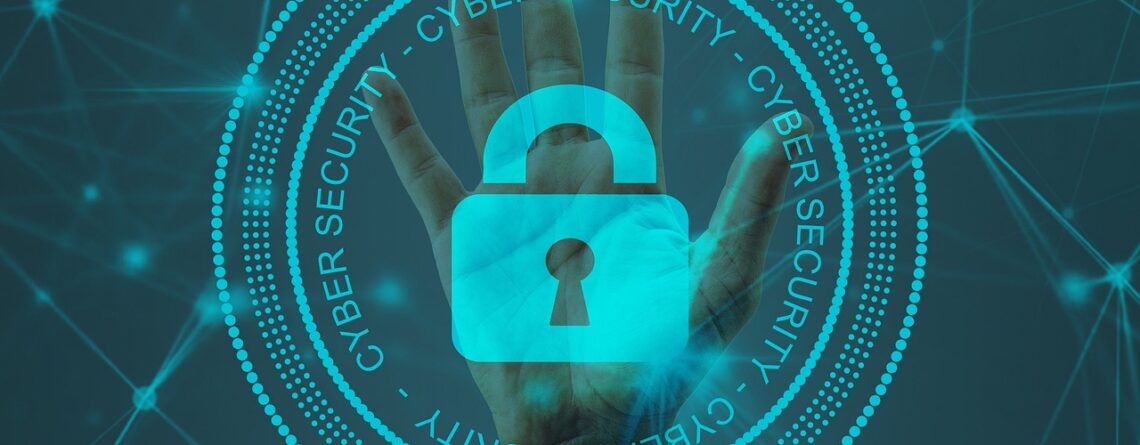Cybersecurity Awareness Month
Introduction
Since 2004, October has been recognized as Cybersecurity Awareness Month. This annual event aims to raise awareness about the ever-growing cybersecurity threats that pose significant risks to organizations and individuals. Throughout October, government and private organizations provide guidance on protecting yourself, your business, and your data from these threats. Over the years, this initiative has expanded its focus, encompassing individuals, businesses, non-profit organizations, and educational institutions – all of which have become prime targets for cybercriminals.
The Evolution of Cybersecurity Awareness
Initially, Cybersecurity Awareness Month concentrated primarily on individual online safety. It emphasized educating people about the risks associated with their digital activities and how to protect themselves. However, as the digital landscape evolved and the threat landscape became more complex, the scope of Cybersecurity Awareness Month also expanded.
Today, the focus goes far beyond individual online safety. Cybersecurity awareness efforts target many topics that affect both individuals and organizations. Key areas of emphasis include email security, safeguarding passwords, the importance of leveraging multi-factor authentication to protect accounts and information, and securing mobile devices, such as laptops, phones, and tablets, which have become ubiquitous in both our personal and professional lives. As we continue to extend our reliance on technology, the importance of heightened cybersecurity awareness, education, and action.
The Sobering Reality of Data Breaches
In a world where technology underpins many aspects of our daily lives, the cost of a data breach is becoming increasingly exorbitant. A recent IBM study shows that the global average data breach cost is $4.45 million, representing a 15% increase over three years. This alarming surge in costs underscores the urgency of bolstering cybersecurity measures. As a result, organizations are allocating more of their budgets to new security tools and enhanced employee training to thwart cybercriminals.
The Impact of Phishing Attacks
One of the most prevalent sources of data breaches is phishing attacks. Phishing attacks are messages sent typically through email that attempt to mislead the recipient into clicking a link or performing some other task, such as providing confidential information based on false information provided in the message. These deceptive tactics account for a substantial portion of data breaches, with Techopedia reporting that 36% of all US data breaches result from phishing attacks. Approximately 83% of organizations experience at least one phishing attack annually. Organizations must prioritize protecting their email systems and educating their staff about the risks and telltale signs of phishing emails to avoid falling victim to these schemes.
A Stolen Password: The Gateway to Data Breaches
Many data breaches do not require sophisticated hacking techniques. Instead, they start with a stolen account and its corresponding password. Stolen credentials are responsible for many data breaches each year. Depending on the account compromised, cybercriminals may gain access to individual email accounts or potentially compromise the entire email system. Financial data and other sensitive information are also at risk, and the most concerning scenario involves perpetrators gaining administrator-level access to critical systems.
Protecting Your Digital World
As we consider why we continue to recognize Cybersecurity Awareness Month annually, it becomes clear that there is a pressing need for individuals and organizations to enhance their cybersecurity posture. Here are some actionable steps you can take to safeguard your digital world:
- Educate Yourself and Others – Stay informed about the latest cyber threats and best practices for protection. Share this knowledge with family, friends, and colleagues to create a network of vigilant users.
- Secure Your Email – Given the prevalence of phishing attacks, implement robust email security measures and train your team to recognize and report suspicious emails. Remember, one errant click can lead to a data breach.
- Protect Your Passwords – Use strong, unique passwords for all your accounts, and consider employing a reputable password manager to simplify the process. Multi-factor authentication adds an extra layer of security, making it harder for hackers to gain unauthorized access. Most importantly, never share your passwords with another person.
- Secure Your Mobile Devices – Protect your mobile devices with PINs, fingerprints, or facial recognition. Install high-quality, reliable security software and keep your device’s operating system and apps current.
- Invest in Employee Training – Organizations should prioritize regular cybersecurity training for their staff. Cybersecurity training should include recognizing phishing attempts, safe email practices, and password hygiene. Organization leaders should schedule training for their teams throughout the year to support good cybersecurity practices continuously.
- Regularly Update and Patch Software – Keep your software and applications updated to address known vulnerabilities that cybercriminals might exploit. Monitor vendor announcements regarding security vulnerabilities as they are identified, and review software regularly to ensure automatic or scheduled updates are applied successfully.
- Consider Professional Assistance – For businesses, especially small and medium-sized enterprises, seeking IT expertise outside your organization is valuable in creating a robust defense strategy.
Conclusion
Cybersecurity Awareness Month is a vital reminder of our ever-evolving digital landscape. The escalating costs of data breaches and the proliferation of phishing attacks emphasize the urgency of bolstering cybersecurity measures. We can create a safer digital environment by educating ourselves, securing our email, protecting passwords, and fortifying our mobile devices. Organizations should also invest in employee training and remain vigilant in protecting their data, as the consequences of a breach can be financially devastating and reputationally damaging.
How Oceantec Can Help
Oceantec assists clients by providing expert technical support and guidance services. We can develop a custom set of products and services to address issues specific to your industry or organization. Contact Oceantec today to learn more about our consulting and managed technology services.


